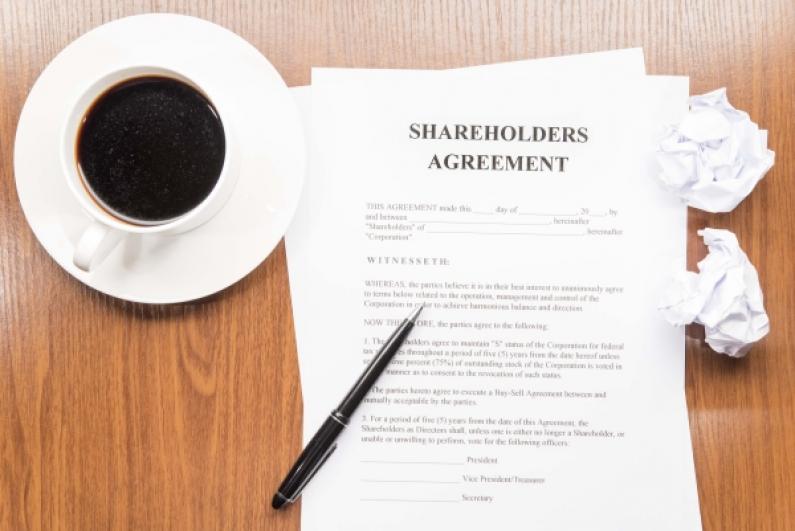Shareholder Relationships: What happens if you need to break up?
Shareholders’ agreements are often compared to a marriage. In many ways this comparison is true, so what happens if you need to break up? In business, breakups happen for many reasons. Here are some pointers about how to avoid a costly mess.
You could compare a corporate shareholders’ agreement to a relationship property agreement, commonly referred to as a pre-nuptial agreement. They both define rules for relationship property: the former for business, the latter for your personal life.
Unexpected issues can arise in any relationship. In business, this might be the death of a shareholder or the need for a shareholder to sell their shares. If you’ve made plans for these kind of events, you can preempt a potentially expensive dispute.
A shareholders’ agreement doesn’t get registered with the Companies Office, keeping the nature of the agreement confidential between shareholders. You only have to register a company constitution which covers provisions for operation.
What’s the difference?
A shareholders’ agreement and a company constitution often have overlaps, but your shareholders’ agreement usually contains more sensitive information about company affairs. Examples are the roles and remuneration of the shareholder employees, funding of growth strategies, the dividend policy, rules about compulsory selling of shares in certain circumstances and dispute resolution.
Methods of dispute resolution
Like other forms of dispute resolution, provisions would include mediation and arbitration clauses. However, in situations where shareholders cannot continue to do business together, a Russian Roulette or ‘shot gun’ clause provides finality.
This is where each party puts forward a price to buy out the other’s shares. The highest price wins. This allows a business to manage the exit of a shareholder. It’s quick and effective but comes with obvious risk.
More provisions you should have in an agreement:
- Include options to purchase shares
- Detail how to calculate the value of shares
- Provide rules to manage shareholder employee’s incapacity, bankruptcy and non-participation
- Establish rules for company loans and guarantees and security given over shares
The benefits of a shareholders’ agreement
Here’s a case study to show the workings of a shareholders’ agreement. Pete and Joan Reid, a brother and sister, each have equal shares and are company directors in Reid Engineering Limited. As siblings, they didn’t think they needed a constitution or shareholders’ agreement, and over the years managed the company well. The only trouble was a poor relationship between Joan and Pete’s new wife, Patty.
Pete died unexpectedly leaving Patty with the large debts accrued from their lavish wedding and honeymoon. Patty desperately needed cash and all she had was Pete’s shares in the company. Joan wasn’t prepared to issue dividends, as she and Pete had planned to reinvest profits for growth.
The already troubled relationship between Patty and Joan became worse. Joan often couldn’t get Patty to sign a ‘special resolution’ required for a company to undertake any major transaction. The Companies Act 1993 requires at least 75% of shareholders to endorse major transactions. The company’s profit and the shareholders’ working relationship suffered.
Joan was also concerned that Patty could sell her shares to another party, meaning she could be working with a stranger.
If a shareholders’ agreement had been in place, this situation could have been resolved. It would have improved the working relationship and given Joan more certainty after Pete’s death. These are the relevant clauses:
- On the death of a shareholder, their shares must be first offered to the existing shareholders.
- Life insurance cross-cover for Joan and Pete. This would have provided cash for Joan to purchase Pete’s shares on his death.
- A clear dividend policy and a policy around reinvestment of profits into maintaining and expanding the business.
The good news
It’s never too late to establish a shareholders’ agreement, which can be invaluable for any company, irrespective of size or sector. The agreement doesn’t need to be complex, and the provisions can be tailored to your specific situation. Talk to our corporate lawyers if you need any advice or information.


